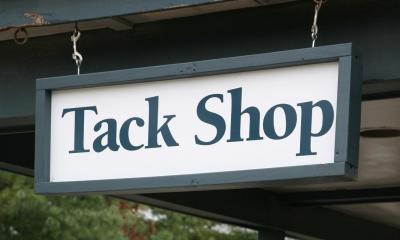
You'll need practical skills to set up as a picture framer and you might also have a specialist picture framing qualification. You'll find all you need to start up and run your own picture framing business in our practical guide.
- Research your target market
- Customer profile
- Why your business
- Building up the business
- Price your services
- Promote your business
- Buy an existing business
Research your target market
When you plan your picture framing business it's important to think about how much demand there is likely to be for your products and services, and make an assessment of the level of existing competition. Doing some market research will help you with this.
Estimating demand
You need to consider whether there will be enough demand for a picture framing business in your area. Be aware that demand for picture framing is likely to be affected by economic conditions - spending on non-essentials such as art will always decrease when money is short. However, there is generally fairly steady demand for hand made, good quality frames, and an even larger market for cheap, standard sized frames for photographs, prints and so on. Competition at the cheaper end of the market is likely to be very strong, however, with ready made frames commonly available from photo shops, gift shops, homeware shops and stationers as well as online.
Customers
Potential customers include members of the public, businesses and organisations. Members of the public might include art collectors looking for a high quality framing service, those wishing to have their own artwork framed, or others simply looking for cheap ready-made frames for their photographs. Trade customers could include professional photographers, artists, art galleries, museums, hotels, restaurants, pubs and organisations such as schools, colleges and hospitals.
Think about the demand for picture framing in your area - this will be influenced by the size and nature of the local population and the state of the local economy. The range of picture frames you intend to offer - from cheap ready-made frames to more expensive bespoke frames - will have a bearing on the type of customers you attract. You could offer a wide range to suit all tastes and budgets, but it might be better to try to match the range of frames and services you offer to the needs and wants of local customers.
If you offer a high quality framing service or restoration and repair work, you may be able to attract customers from further afield. Advertising in art and craft magazines and sending details of your services to art galleries will help to get your business known to a wider audience. However, getting work from further afield will depend on building up a good reputation, which may take time.
Local businesses that might be interested in your services include professional photographers, artists, art galleries and museums. From time to time you might also get work from restaurants, hotels, pubs, schools and colleges. A quick check through the local telephone directory might give you an idea of the number of such businesses in your area.
You may decide that you will need to travel to make sufficient sales. For example, perhaps you could have a stall at a Sunday market in a neighbouring town, or visit craft fairs around the country. You may decide to sell ready-made frames online from your website - this could help you to reach a wider market.
Establishing the level of competition
Having thought about who your potential customers will be, you need to find out how well they are already served.
How many other businesses in your area offer picture framing? A look on Yell.com (try classification 'picture framers and frame makers') and other similar directories will help you to establish this. Try other online searches for your area too.
Bear in mind that people can buy ready made picture frames from lots of different sources including gift shops, photographic developers, DIY stores, stationery suppliers, art and craft shops, department stores and so on.
Don't be too discouraged if there are lots of outlets selling frames - you may be able to make trade sales to some of these other businesses. For example, gift shops, art galleries or tourist outlets might all be interested in stocking your frames - either for sale as they are, or complete with prints or photographs of the local area.
When looking at your competitors' advertisements and websites make a note of:
- the range of picture frames and framing services they offer
- if they offer any other services (for example repairs, restoration work and so on)
- any special features advertised, for example 'all work guaranteed', '25 years experience' and so on
- whether they belong to the Fine Art Trade Guild Commended/Certified Framer (GCF) scheme
- the prices they charge
Be aware that picture frames - including standard-sized ready-made frames and made-to-measure frames in a large range of different styles and materials - are widely available online at very competitive prices. These types of frame are typically aimed at customers who want to mount a print, photo or poster rather than an expensive one-off piece of art, but it's nevertheless a strong source of competition for 'bread and butter' framing work.
The results of your research will help you to focus your picture framing business on any gaps in the market that you think are worth filling. You'll also have a better idea of how much local people are likely to be prepared to pay for your services. Remember that you may also face competition from people who frame pictures as a hobby, but undertake a small amount of work for others on a casual basis. They may accept framing work for cash, but are unlikely to advertise anywhere.
Research current trends, plus legal and tax issues
Customer profile
You might sell your picture frames to members of the public or to trade customers such as local art galleries - or to both.
Members of the public
To sell direct to the public you could open your own shop, offer a framing service from home, have a market stall, attend craft fairs and exhibitions, or you could try mail order and online sales. Think carefully about the range of customers you will target - consider your location, the people who live there and your own skills, experience and interests.
You may deal with various types of customer depending on the range of frames and services you offer. If you concentrate on making cheaper, basic frames in standard sizes, you are likely to attract a wide range of customers who will probably be locally based. You might extend your potential customer base if you offer unusual frames, for example ceramic photo frames, or driftwood mirror frames. Expensive framing services will mainly be used by more affluent people, but you may be able to attract such customers from a wider area, especially if you attend art and craft fairs or advertise online. Don't forget that if you are located near an art college, art students are likely to want to frame their exam projects - if they plan to do this themselves you may be able to supply them with framing materials.
If you're prepared to be flexible and accommodate unusual requests then you may get work from various other people who want to frame something special. Examples could include anglers who want to preserve and display a prize-winning fish, collectors who have obtained something particularly rare and/or valuable such as a signed football shirt, and other owners of things like medals or memorabilia.
Trade customers
Trade customers could include local art galleries, gift or craft shops, professional photographers and artists, photographic shops (especially those offering print services), department stores, museums or tourist attractions selling local artwork. You can try approaching these outlets directly - show them a selection of your work and ask if they are interested in buying anything, or whether they would be willing to stock ready made frames on a commission basis. Attending an art exhibition or craft fair is sometimes a good way to meet potential trade customers from a wide area.
Why your business
You will need to make sure that enough customers will choose to buy your picture frames or use your picture framing service. There are a number of things to consider when trying to attract customers.
A gap in the market
Your market research might have indicated that there is a gap in the market that your products can fill. For example, perhaps no one in your area offers high quality, made to measure frames. Maybe existing picture framers cater well for the top end of the market, but less well for those looking for cheaper frames or a while-you-wait service. Alternatively, you may have identified a demand for a cleaning or restoration service.
The right range
You must be able to make and supply the kind of picture frames that your customers want to buy. It is vital that the frames you make are of a high quality both in terms of workmanship and the materials used. This applies to ready made standard sized frames as well as more expensive made to measure items.
The right price
Artwork is a luxury item and many customers will be more concerned about finding the right frame than paying the lowest price. This is particularly true of the market for made to measure, quality frames. However, depending on the type of business you decide to operate, many of your sales are likely to be of cheaper ready made, standard size frames to local shops or art galleries, for which the price is more important. For these items it's important to set your prices broadly in line with those of your competitors.
The right image
Providing a helpful, knowledgeable and personal service will go a long way to encouraging people to choose your picture framing service. Having an in-depth knowledge of frame design and manufacturing techniques will enable you to provide useful advice to potential customers - particularly important if you are approached to restore an old frame. You will generally find that customers welcome your input when choosing a frame so it helps to have a general knowledge of framing matters. For example, an oil painting on canvas does not need to be framed under glass and mounts are not usually used when framing an oil painting. A modern painting will generally look better in a modern frame while a more traditional style is likely to benefit from a more traditional frame. Always aim to be friendly, polite and helpful - remember that word of mouth recommendation is by far the best form of advertising.
Building up the business
Think about how your business will start out and what your medium-term plans are for the business. You might be intending to start right away from a retail premises, or you may want to get going in a small way - perhaps only on a part time basis - with the aim of expanding gradually.
Starting from home
Many picture framers start out making frames as a hobby, perhaps to display their own artwork or photographs. Some go on to make frames for friends and family and maybe accept a few additional jobs on a casual basis. Changing an interest in picture framing from a hobby to a business is a big step, but is easier than starting up a business from scratch, with little knowledge or experience.
To begin with, you could make frames in your spare time - evenings and weekends. This will enable you to start building up a customer base and help you test the level of demand. When the volume of work increases, you might consider investing in better tools and equipment. Working from home saves any outlay on business premises. A room can be set aside as a workshop, or you could convert a garage or large shed. As well as a working area, you'll need some space to store materials such as mouldings, board, glass and so on. Because you won't be very visible, you'll need to think carefully about how you'll attract customers - you could consider advertising online as well as contacting organisations like galleries that might put work your way.
Tools of the trade
The tools required for picture framing need not be expensive. Frames can be made with just a few basic tools - a mitre saw, a board cutting knife, a basic frame clamp and some hand tools. Getting good results with more basic equipment can be time consuming, so for larger scale production you'll need more sophisticated equipment. Professional mitre machines (guillotines), measuring devices, more sophisticated clamps and frame joining machines allow frames to be made quickly and to a very high quality.
Retail outlets
As your business builds up, you may need to move to a larger workshop. Having premises with a shop front where you can display examples of framed artwork will greatly increase the volume of trade you can expect the business to generate. Offering ready made frames in a variety of styles and sizes, or a while-you-wait framing service will also attract passers-by. At this stage you may need to think about taking on staff - you'll need someone to serve customers when you're busy in the workshop. If you are unable to have your own retail outlet, you could try approaching local art galleries or gift shops to see if they would be willing to display some of your frames.
Restoration work and repairs
While basic ready made frames are available from many outlets, restoration and repair services for old frames are less widely offered. Old works of art or mirrors may benefit from having their frames cleaned or restored and you may find that you can make extra money by offering these services to your customers. Bear in mind that restoration work is a very specialised skill and attempting to restore frames without the necessary expertise could lead to costly mistakes.
Price your services
How will you decide on your prices?
Getting the price right is very important. You must make sure that the selling price of a frame is enough to cover the cost of the raw materials, your operating costs and your own drawings. When setting your prices take into account:
- the quantity of materials used and their cost
- the time taken to make the frame
- an element to cover profit
Bear in mind that the lower end of the picture frame market is very competitive and you will have to take into account the prices charged for similar frames elsewhere. Your potential customers will be able to buy ready made frames at reasonable prices from a variety of sources, so you may have to set your prices in line with those of your immediate competitors - as well as what the local market will bear. This may prompt you to target the more affluent customer, who is likely to be prepared to pay premium prices for a top quality framing service.
Don't forget that if you plan to sell to trade customers like art galleries as well as to members of the public then your trade customers will probably expect a discount.
Other services
Also consider how you will cost any other services you provide - for example cleaning and restoration work. Decide how often you will review your prices and whether you will offer discounts or special offers.
Special offers and discounts
You may decide to offer a discount on large orders. How much discount will depend on your pricing policy and the level of local competition. You might be prepared to offer customers a discount if they commission you to frame several items at a time.
Many businesses give discounts to employees, regular customers, family and friends. Check out the opposition for ideas and keep a close eye on any special offers you do make to be sure that they are working for you. After all, these kinds of promotions might encourage extra business, but they will also affect the amount of profit you make.
Promote your business
It is important to advertise your picture framing business effectively, to let your potential customers know who you are, where you are and what you can do for them. Many customers will only require framing services on occasion and so may not have the name of a picture framer to hand. The first place that many are likely to look is online.
Advertising online
More and more people search for things like picture framing services online - so a website is probably essential. You could also benefit from a listing in an online directory - such as that maintained by the Fine Art Trade Guild.
You could consider taking an advert on Yell.com. Bear in mind that many of your competitors will have done the same and some firms spend a lot of money on large, eye-catching display advertisements. Try to include in your advertisements all the main points about your business and the range of frames and framing services you offer. Be sure to emphasise any things that distinguish your business from its competitors for example, '25 years experience', 'family run firm', 'while-you-wait' service and so on. Members of the Fine Art Trade Guild benefit from discounted advertising on Yell.com.
Think about adding your professional profile to LinkedIn so that potential customers are aware of your picture framing expertise and qualifications. You could use other social media to market your business and stay in touch with regular customers too.
Other ways of advertising
Think about other ways of promoting your business. You could, for example, distribute paper flyers or businesses cards to art galleries, photographers or gift shops and ask if they would pass some on to their customers. You could try contacting local art classes, photography clubs, schools, colleges and WI groups to let them know about the framing services you offer. Perhaps you could offer an introductory discount to members of these groups or even consider giving a talk or demonstration.
Your local newspapers may run a regular 'contact the experts' advertising feature. Finally, remember that a business vehicle can be an effective means of advertising if you have it sign-written and keep it clean and presentable.
Word of mouth
Word of mouth recommendations are very valuable to your business. If you do a good job, local galleries, artists and gift shops will hear about it and might recommend your services to other customers. People may trust you with old and valuable works of art so they will want to be sure that you are a careful worker and do a good job - a recommendation from a friend will help to persuade them. Membership of a trade association or the Guild Commended/Certified Framer scheme will reassure them, too. You will have to earn your reputation through good, reliable workmanship - but a friendly and polite manner can pay big dividends from the outset. Make sure that any people you employ are good ambassadors for your business too.
Buy an existing business
You might decide to buy an existing farm supply business rather than start your own venture from scratch. Buying a going concern can mean that the products, customers, regular sales, staff, premises and equipment are already in place.
But buying a business can be a hazardous, expensive process unless you have the right skills and experience on your team, including legal and financial know-how. Establish the genuine trading and financial position, so that the price you pay for the business is not too high.
Other matters to consider include:
- if you are paying for goodwill, to what extent does this depend on the skills and personality of the seller. Are you sure that your framing skills and expertise matches that of the previous owner - if not your 'existing' customers are likely to melt away



